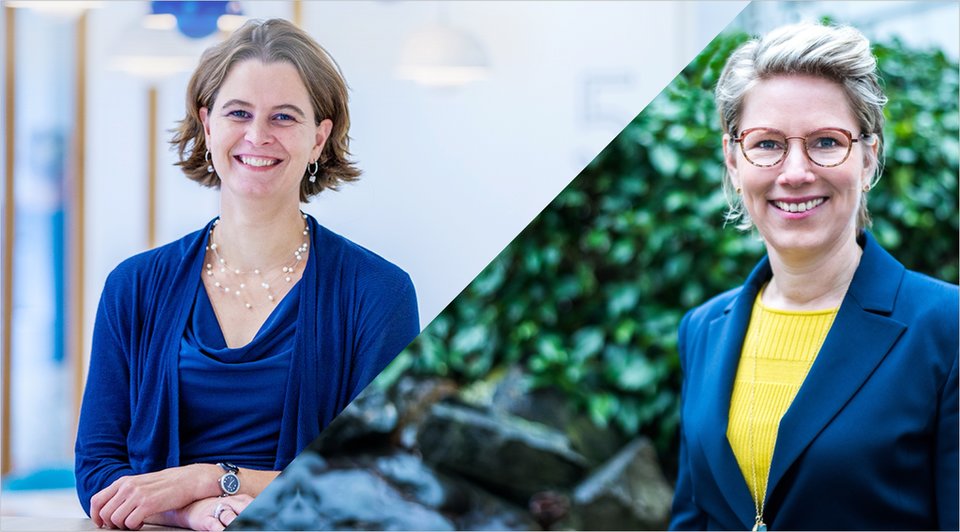Patient’s Perspective
03
Oncode Accelerator puts patients at the center of cancer drug development
Stating that we put patients at the center of our approach is a hollow phrase if you don’t back it up with talented scientists and program leaders with great plans. Luckily, with Geraldine Vink and Miriam Koopman, Oncode Accelerator has both.

Although the outcome for cancer patients in general has improved over the years, cancer is still one of the primary causes of death worldwide and its burden is increasing. This is one of the driving forces of the Oncode Accelerator program: we want to innovate the way we develop cancer therapies for the benefit of cancer patients worldwide. Therefore, we like to say, ‘we put the patient at the center of our approach’.
But how do we do that? The team in our Patient Cohorts platform, one of three Innovation Platforms within Oncode Accelerator, is the obvious choice to ask this question. Geraldine Vink (UMC Utrecht/IKNL), and Miriam Koopman (UMC Utrecht) co-lead the Patient Cohorts platform. Miriam is eager to explain how the patient plays a key role in Oncode Accelerator. ‘Currently, developing new cancer medication takes approximately 20 to 30 years, and patients come only into play during early clinical trials, so-called phase 1 and 2 trials’, she explains. ‘Oncode Accelerator aims to involve the patient much earlier in this process by using data and material from well-defined patient cohorts. Patient cohorts have access to extensive clinical data and patient materials like tumor tissue and blood samples. This data aids in target discovery, lead finding, and lead validation.’

Geraldine adds that patients will also benefit from Oncode Accelerator’s innovative approach which aims to develop more personalized treatments. ‘A system is being built within the Patient Cohorts Platform, so that real-time data available from the Netherlands Cancer Registry can be used in the near future’, she says. Oncode Accelerator will provide a central place to quickly see what options are available for a patient to participate in an early clinical trial.
How does this benefit the individual patient? Miriam outlines the current challenge: ‘Currently, when I, as a medical oncologist, prescribe a drug, I often don’t know whether it will be effective. A drug may be effective in, for instance, 60% of the patients seen in daily clinical practice, for a number of reasons. In addition, every tumor is different and has a unique molecular make-up.’
That’s why clinicians need good biomarkers to better select the patient population for whom the treatment will be effective. Geraldine: ‘With patient cohorts, we have data from a diverse patient group, allowing us to select either a broad patient population or a smaller group with specific mutations for our tests. This will help us in the search for good biomarkers and better defining for which patients’ medication will be effective.’
About
Geraldine Vink
Geraldine acts as a Program Lead of the Well-defined Patient Cohorts platform, and is also working as a Program Manager at University Medical Center Utrecht and the Netherlands Comprehensive Cancer Organisation (IKNL).
About
Miriam Koopman
Miriam is internist-oncologist and professor of medical oncology at University Medical Center Utrecht, and acts as Principal Investigator and Scientific Lead of the Well-defined Patient Cohorts platform within Oncode Accelerator.
Credits: interview by Erwin Boutsma; photography of Miriam Koopman by Marloes Verweij, Laloes Fotografie